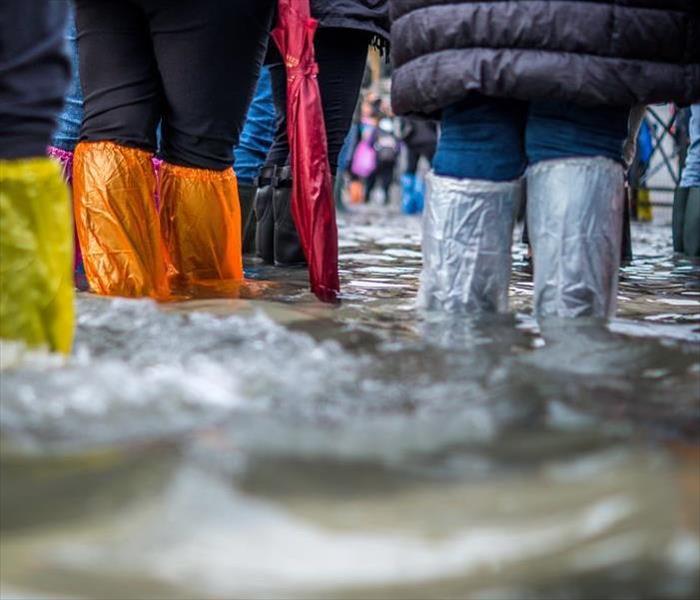After the Flood - The Do’s and Don'ts
5/29/2019 (Permalink)
Floods can be devastating to Indianapolis homes and businesses. Not only can the initial flood waters cause extensive damage but so can the potential mold growth afterward. Before returning to your flood-damaged home, there are things you should do and not do after the flooding.
Wait Until the All Clear
Flood water can be deceiving. While it may seem that the waters have stopped rising or have receded, they can quickly rise as the rivers and streams bring more water from upstream. The best thing to do before even attempting to return to your home is to confirm with the emergency services that it is safe to do so. If there are fire or police in the area, you can also ask them if it is safe to enter your home.
Inspect the Exterior for Damage
Before entering your home, walk around the perimeter of your home to check for any damage to the exterior, downed power lines, or ruptured gas lines. If you smell gas or see a downed power line, leave immediately and contact the authorities. They will contact the utility companies to ensure the power is off and/or the gas line is shut. Do not go back until you have confirmed that there is no danger of electrocution or gas explosion. You also want to check for any structural damage to your home. If the roof is collapsed or sagging or the walls are buckled or heavily damaged, you shouldn’t enter your home as it could be unstable and at risk of collapsing.
Do Not Enter Flooded Floors
If your basement, lower level, or first floor are flooded, do not enter the floors. The water could be hiding hidden dangers like sharp objects, snakes, chemicals, and dangerous bacteria. If the water is flooded in the lower levels of your home, you will want to pump out the water first. Once the water has been cleared out, then comes the messy cleanup. Flood water can be a toxic stew of things that can harm your health. That’s why it’s a good idea to wear rubber boots and gloves to protect yourself from any chemical or waste residues.
Get Rid of Water Damaged Goods
If any of your food has gotten wet from the flood waters, you should throw it away. If your refrigerator has gone without power for a while, you’ll also want to empty it before mold takes hold and makes a bigger mess of your fridge. It’s advisable to remove as many water-logged materials like papers, clothes, storage boxes, fabric furniture, drywall, curtains, and carpets. As you can see this can be a huge and overwhelming job. That’s why it’s usually a better idea to have a professional flood restoration company do this all for you.
Don’t Risk Further Damage. Contact SERVPRO of Indianapolis West.
Flood damage can be devastating especially if you don’t act fast and don’t remove all of the damage. To ensure all of the flood waters and water damage are removed, it’s best to call the storm damage and clean up professionals at SERVPRO of Indianapolis West. They have the expertise and equipment to handle all types of damage from flood waters, sewage overflows, busted water pipes, and mold growth. They’re available 24/7 for any size disaster. Give them a call if disaster strikes your home.






 24/7 Emergency Service
24/7 Emergency Service
